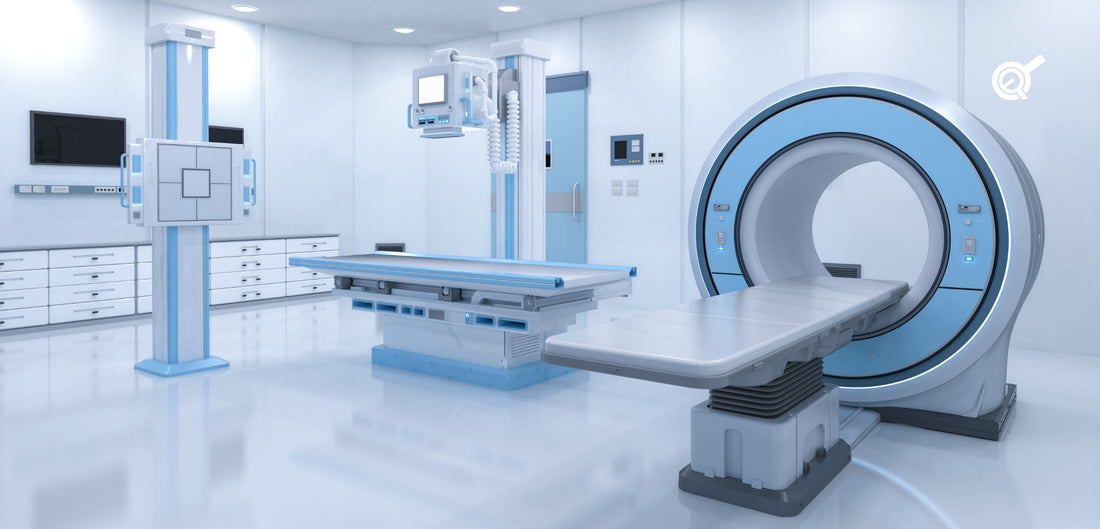The medical industry is undergoing a transformative evolution, with a significant emphasis on reducing the size of medical equipment without compromising functionality or efficiency. This trend towards miniaturization is pivotal in enhancing patient care, improving accessibility, and optimizing healthcare services. Linear actuators play a crucial role in this advancement, offering precise motion control in compact forms. As a leader in automation solutions, Progressive Automations is at the forefront of providing innovative linear actuators that meet the stringent demands of modern medical equipment design.
The Importance of Miniaturizing Medical Equipment
Miniaturization in medical devices is not merely a trend but a necessity driven by the need for accuracy, efficiency, and patient comfort. Smaller medical devices enable healthcare professionals to perform delicate procedures with greater precision, improving patient outcomes. They also facilitate the development of portable and home-based medical equipment, expanding access to quality healthcare services beyond traditional clinical settings.
Enhancing Precision and Patient Outcomes
In tasks such as microsurgery or intricate diagnostic procedures, the precision afforded by miniaturized equipment is invaluable. Smaller devices allow for less invasive procedures, reducing recovery times and minimizing the risk of complications. Linear actuators contribute to this precision by providing smooth, controlled movements essential for delicate operations.
Increasing Accessibility and Reducing Costs
The demand for healthcare services is growing, and there is a pressing need to make these services more accessible, especially in remote or underserved areas. Miniaturized medical equipment is typically more portable, allowing for deployment in a variety of settings, including patients' homes. Additionally, smaller components often mean lower production costs, making advanced medical technology more affordable for healthcare providers and patients.
Technological Advances Driving Miniaturization
The miniaturization of medical equipment is fueled by significant advancements in materials science and technology. Progressive Automations leverages these advancements to develop high-performance linear actuators that meet the exacting standards of the medical industry.
Innovations in Material Science
The use of advanced materials such as high-strength plastics and specialized alloys has enabled the production of smaller yet more durable components. These materials offer excellent wear resistance and biocompatibility, making them ideal for medical applications. Linear actuators made with these materials are lighter and more compact, without sacrificing performance.
The Rise of Microelectronics
Microelectronics has revolutionized the design of medical devices. The integration of microprocessors, sensors, and control systems into miniature forms has allowed for the development of sophisticated medical equipment that can perform complex tasks. Linear actuators equipped with microelectronic controls provide precise motion control in a compact package, essential for modern medical devices.
Applications of Linear Actuators in Medical Equipment
Linear actuators are integral components in various types of medical equipment. Their ability to provide precise and reliable movement makes them indispensable in devices where accuracy and smooth operation are critical.
Surgical Equipment
In surgical environments, precision and reliability are paramount. Linear actuators are used extensively in robotic surgical systems, enhancing the surgeon's ability to perform minimally invasive procedures.
Robotic Surgery
Robotic surgery systems rely on linear actuators to control instrument movement with high precision. These actuators enable surgeons to perform complex procedures through tiny incisions, reducing patient trauma and speeding up recovery times. The smooth and accurate motion provided by actuators is essential for the delicate manipulation of surgical instruments.
Endoscopic Procedures
Endoscopy involves navigating flexible instruments through the body to diagnose or treat conditions. Linear actuators facilitate the precise control of endoscopic devices, improving image quality and reducing patient discomfort. The compact size of these actuators allows for a more streamlined and less invasive equipment design.
Patient Handling and Positioning Equipment
Comfort and safety are critical when it comes to patient handling. Linear actuators help adjust medical furniture to meet individual patient needs, enhancing comfort and care quality.
Adjustable Beds and Chairs
Linear actuators enable smooth adjustment of beds and chairs, allowing for precise positioning to enhance patient comfort and facilitate medical procedures. This adjustability is essential not only for patient comfort but also for healthcare providers to perform examinations and treatments effectively.
Rehabilitation Equipment
In rehabilitation settings, equipment must adapt to various therapeutic exercises and patient requirements. Linear actuators provide the necessary movement and resistance adjustments in devices such as motorized exercise machines and therapeutic chairs, contributing to more effective rehabilitation outcomes.
Imaging Equipment
Imaging tables equipped with linear actuators can be precisely adjusted to optimize the positioning for diagnostic imaging procedures such as MRI, CT scans, and X-rays. Accurate positioning ensures higher-quality images, leading to better diagnoses and treatment plans.
Hematology and Laboratory Equipment
Laboratory equipment, including hematology analyzers and centrifuges, benefits from the compact and precise movement offered by linear actuators.
Blood Analyzers
Linear actuators contribute to the automated handling and processing of blood samples, enhancing the throughput and accuracy of blood analyzers. Their reliability and precision are crucial in ensuring consistent results, which are vital for accurate diagnoses.
Enhancing Accessibility and Efficiency in Healthcare
The integration of miniaturized linear actuators in medical equipment has a profound impact on both the accessibility of healthcare services and the efficiency of medical procedures.
Improving Accessibility
Compact medical devices are more easily deployed in a variety of settings, including remote clinics and home healthcare environments. This flexibility is essential for reaching underserved populations and providing care in areas where traditional medical infrastructure may be lacking. Progressive Automations' solutions enable the development of portable equipment that brings medical services directly to patients.
Boosting Efficiency
Precision and reliability in medical equipment lead to faster procedures and reduce the likelihood of errors. Linear actuators contribute to this efficiency by ensuring that devices operate smoothly and accurately. This efficiency not only improves patient experiences but also allows healthcare providers to serve more patients effectively.
Future Trends and Innovations
The future of medical equipment design is poised to embrace even greater levels of miniaturization and sophistication. Progressive Automations is committed to advancing actuator technology to meet these evolving needs.
Advancements in Actuator Technology
Ongoing research and development are focused on creating actuators that are smaller, more powerful, and more energy-efficient. Innovations such as smart actuators with integrated sensors and feedback systems are emerging, offering enhanced control and functionality.
Expansion of Robotic and Automated Systems
As robotic systems become more prevalent in medical procedures, the demand for compact and precise motion control solutions will grow. Linear actuators will continue to be a critical component in these systems, enabling new capabilities and improving patient outcomes.
Customization and Specialized Solutions
The ability to tailor medical equipment to specific applications is increasingly important. Progressive Automations offers custom actuator solutions to meet unique requirements, supporting the development of specialized medical devices that cater to niche areas of care.
Conclusion
Linear actuators are at the heart of the miniaturization movement in medical equipment, driving innovations that enhance patient care, improve accessibility, and increase efficiency. Progressive Automations stands as a key contributor to this advancement, providing high-quality, reliable actuator solutions that meet the complex demands of the medical industry. As the future unfolds, continued collaboration and innovation will be essential in pushing the boundaries of what is possible in medical technology, ultimately leading to better healthcare outcomes for all.




